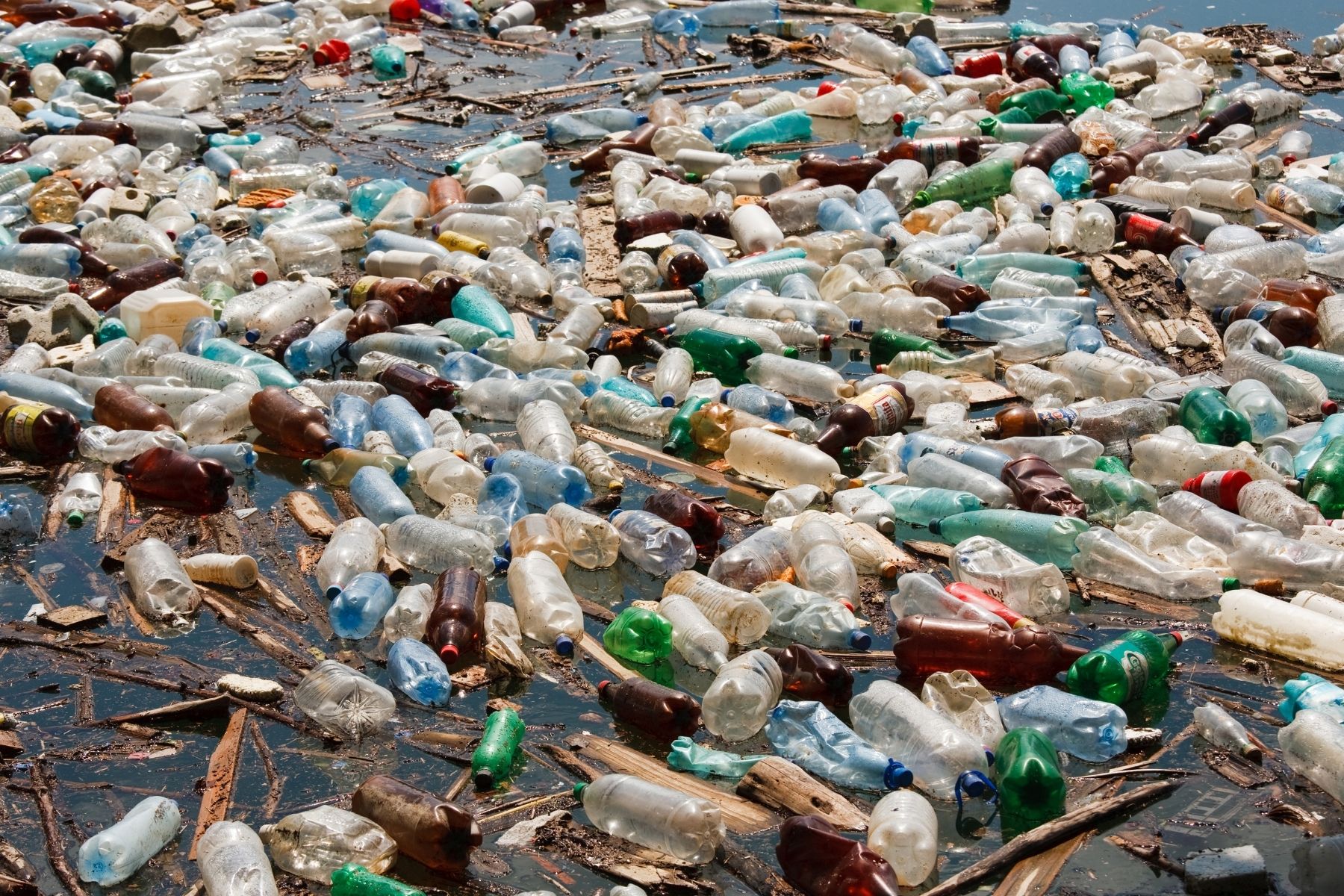

Senate Committee Poised to Vote on Major Packaging Reduction Legislation
New Jersey - New Jersey Environmental and Environmental Justice Advocates gathered alongside medical professionals to discuss the urgency and necessity of solutions to the plastic waste crisis. Speakers included experts from Environment New Jersey, Just Zero, Clean Water Action, and New Jersey Environmental Justice Alliance as well as NJ Pulmonologist Dr. Walter Wynkoop and Rutgers University Pharmacology and Toxicology Professor Dr. Phoebe Stapleton.
On the eve of the last NJ Senate Energy and Environment Committee, advocates called on legislators to pass Senate Bill S. 3398, Packing Product Stewardship Act sponsored by Sen. Bob Smith. In particular, advocates called on the legislature to include strong provisions to reduce toxics in packaging, eliminate any exemptions to the law, ensure chemical recycling was not included as an alternative to true recycling, and to provide for strong accountability and transparency requirements. With nearly 40% of plastic used for packaging, the need for this bill is incredibly apparent.
“It’s time to update the mantra of reduce, reuse and recycle. Our waterways – and our bodies – are literally swimming in plastics, and we can’t recycle our way out of the plastics crisis. More than two years after the ban of single-use plastic bags, the job is not done and the time is now for the State Senate to stop the wave of plastics that is swamping our environment. Extended producer responsibility is a simple concept of asking the companies that produce plastics to take responsibility to reduce the amount of plastics they are producing to ensure that our communities aren’t deluged with plastics that can’t be recycled. We urge the Senate Environment Committee to support S3398 tomorrow and vote the legislation out of committee.” Doug O’Malley, Director, Environment New Jersey
“Plastic is a toxic product made from petroleum and thousands of chemicals that have been linked to cancer, fertility, neurological and mental health issues. The environment is harmed during the manufacturing and disposal of plastics. Toxics can migrate through packaging into the foods and beverages we consume. The public should not be paying the health and environmental cost while others are getting richer. There are better alternatives. We don’t need plastic wrapped in plastic and we don’t want single-use toxic packaging. Manufacturers are continually finding ways to integrate plastic into our lives and need to take the responsibility to reduce waste. The solution is passing strong Extended Producer Responsibility legislation.” Marta Young, Zero Waste Specialist, Clean Water Action
“The issues plaguing EJ communities - toxic air quality, disproportionate health impacts, siting of industry in EJ communities, and the dumping of plastic waste, among others - are all connected back to a root cause: an overproduction of plastic materials and waste. A product stewardship bill can decrease unnecessary plastic packaging which can reduce plastic pollution as well as the associated air emissions and energy consumption. These outcomes decrease the disproportionate burden of waste and air pollution that EJ communities experience.” Brooke Helmick, Director of Policy, New Jersey Environmental Justice Alliance
“I can testify to the reality of the recent documentary ‘We’re All Plastic People Now’ after submitting my urine to analysis and discovering high levels of four toxic plastic chemicals are now in my body, a fact unsettling at best and scary at worst.” Brian Thompson, former NBC NY reporter, Member of the Beyond Plastics National Advisory Board and Environmental Commissioner in Monmouth Beach, New Jersey
“Plastic packaging is out of control and wreaking havoc on land and at sea— and it is only getting worse. In the ocean and on our beaches, it is not only ugly, but can harm, maim, or kill marine life by ingestion and entanglement. It also breaks down into microplastics which are now found in seafood, and in zooplankton – the base ocean’s web of life. Plastic packaging is a major component of plastic marine debris. Based on recent data from COA’s Annual Beach Sweeps, plastic packing accounted for nearly 40% of the litter removed from Jersey Shore beaches. Importantly, what is found on beaches is just a small fraction of what ends up in the ocean. Minimizing and eliminating plastic packaging is a no-brainer step in the right direction, if we want to sustain life.” Cindy Zipf, Executive Director, Clean Ocean Action
A strong packaging stewardship bill would significantly reduce plastic packaging in the state, ban the most toxic chemicals used in packaging, reduce climate emissions, and save taxpayers money by shifting the burden of dealing with packaging waste to the companies responsible for creating it. New Jersey would benefit from less plastic pollution: we must put people over plastic.
###
Since our founding during the campaign to pass the landmark Clean Water Act in 1972, Clean Water Action has worked to win strong health and environmental protections by bringing issue expertise, solution-oriented thinking and people power to the table. Learn more at www.cleanwater.org.